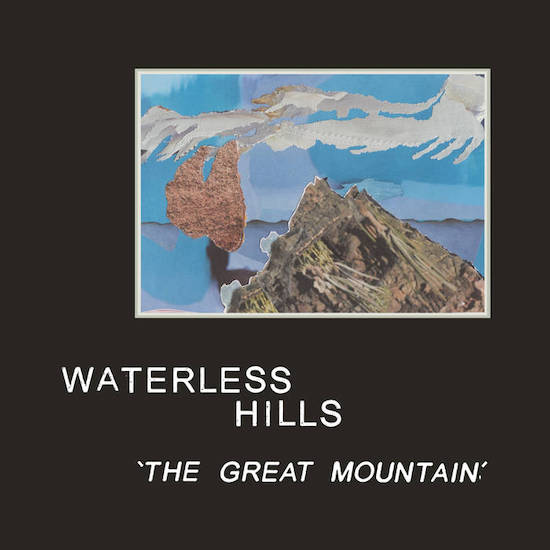Waterless Hills are four musicians from around the edges of the alternative folk scene who have combined to improvise the soundtrack to an imaginary film. If you think that sounds self-indulgent, you couldn’t be more wrong. On an album recorded in a single day, the four play with an intensity of focus that makes the imagined images flicker and dance. From thin air they conjure an instrumental soundscape of psychedelic, Eastern sounds that hint at 1930s blue-tinted silent film, intrepid female explorers and the far mountains of Persia, which is precisely the idea. The album is inspired by Freya Stark’s classic 1934 travel book, The Hills of the Assassins, in which she became the first European to report from the strongholds of the hashish-eating Lords of Alamut, bandits living in the mountains that separate modern Iran and Iraq.
The album consists of two pieces, each divided into four tracks, recorded live in Manchester. The musicians – dbh on violin, Gavin Clarke on bass, Andrew Cheetham on percussion – have strong Manchester links, and they have come together with guitarist, C Joynes. The four have recorded on their own accounts, and with the likes of Richard Dawson, Jim Ghedi, Kiran Leonard and Irma Vep. Together, their music is characterised by connections outwards: to the improv strings of Laura Cannell, to original folk revival pioneers such as Davy Graham, to country and to frazzled ‘60s West Coast psychedelia. They also draw in visual art, referencing the occult British surrealism of Ithell Colquhoun. Powerful female figures lurk in the background, and the opening track on Side B, ‘An Insect That Eats the Moon’, is an epic, guitar-led wig out strongly reminiscent of Fairport Convention’s ‘A Sailor’s Life’. C Joynes unreels a delicious, wobbling solo electric guitar line worthy of Richard Thompson, preparing the ground for the equivalent of Sandy Denny’s vocals, which will never arrive. It is a remarkable track that reveals an entranced and entrancing desert night viewed through a stack of cultural lenses.
Elsewhere, The Great Mountain plays equally successfully with the ideas of exotic settings and landscapes. The first side, with descriptive titles such as ‘The Untidy Country of Glaring Limestone’, seems to be set by day, with more light, glancing percussion and faster playing. As Side B opens, the sun appears to set and the spell deepens. Joynes and dbh combine to explore layers of sound, weaving closer and closer together. By the final track, ‘East of Walantar’, the entire band is wrapped tightly into the groove, moving as one. Their individual skills are unmistakable, but as improvisers they respond almost telepathically to one another, channelling the sounds in their heads into a collective sound with apparent ease. The result is an energising, satisfying record that manages to sound both familiar and naggingly unlike anything else.


